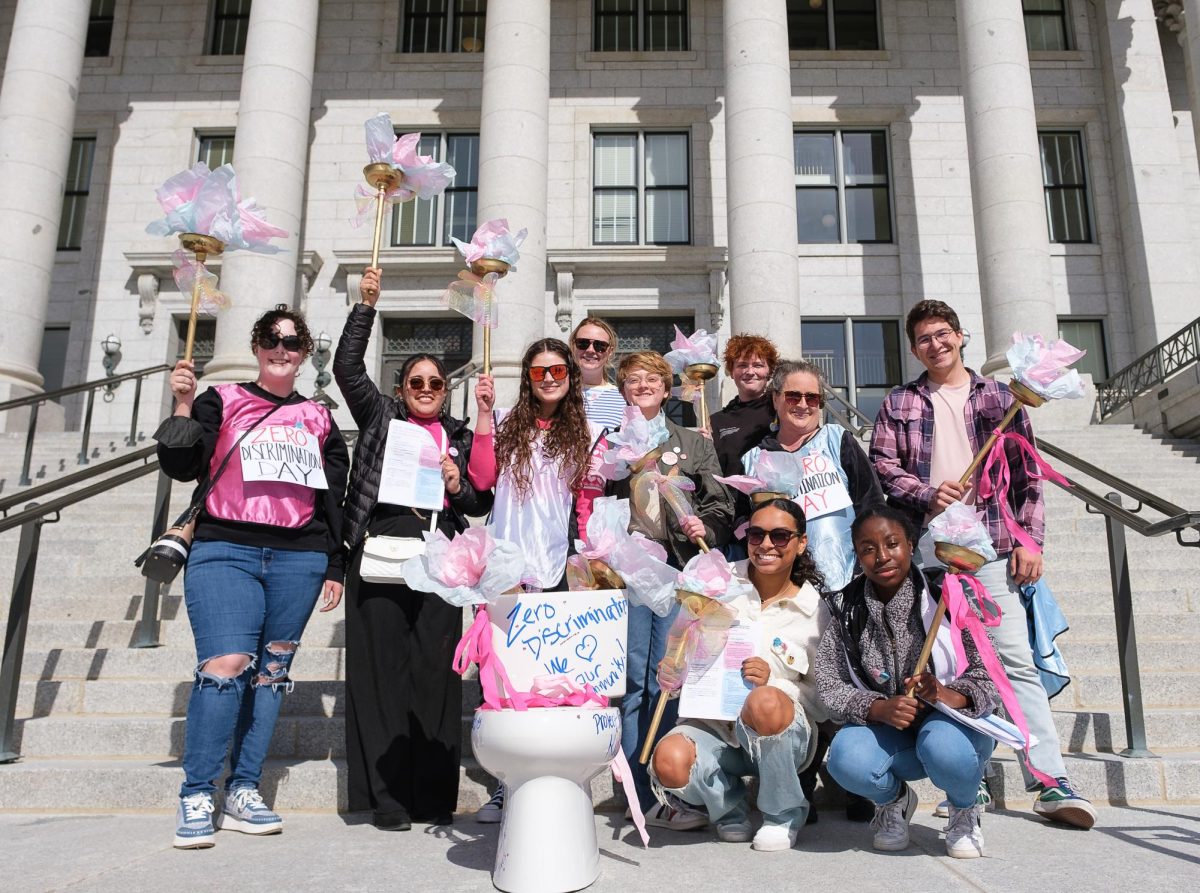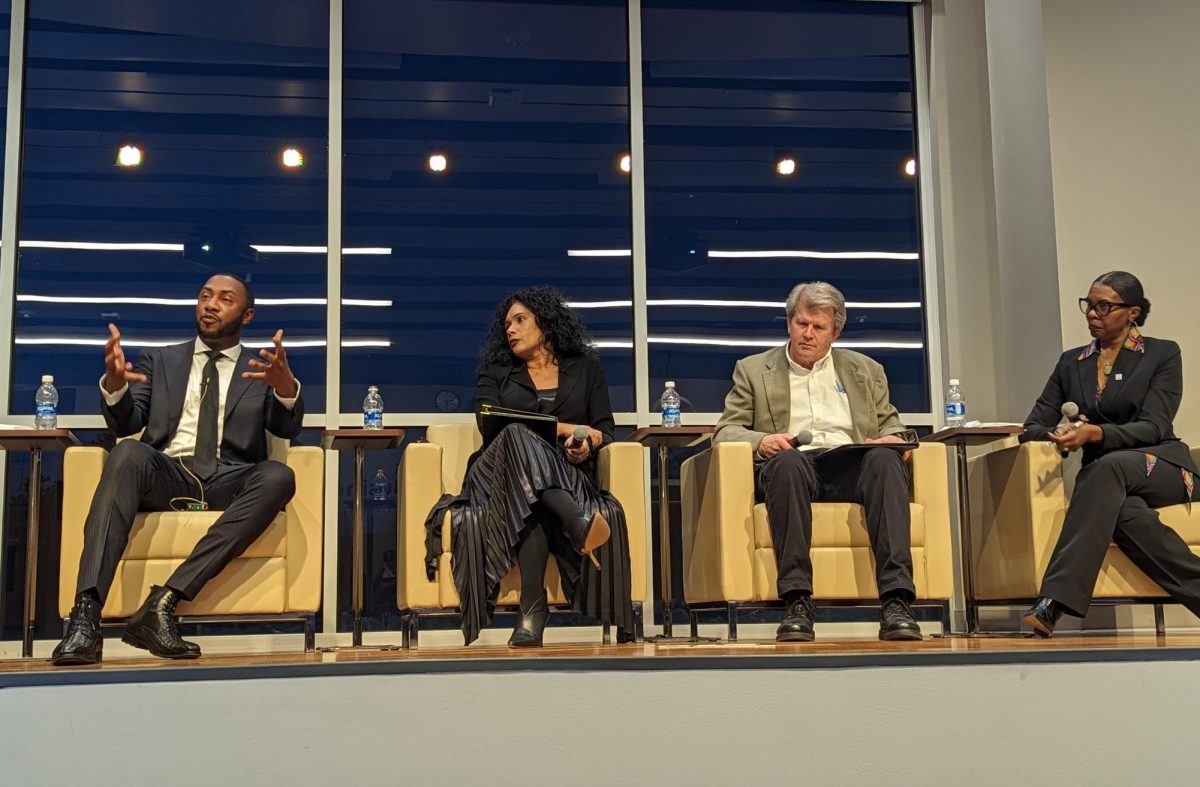
Marjorie Clark / The Daily Utah Chronicle
Some might say Monday morning is too early to talk about liquor laws, licenses and the Department of Alcoholic Beverage Control, but the Hinckley Institute of Politics and Bonneville Research disagree as they hosted the event “Working in Partnership with Utah State Government.”
“Say what you want to say about the state being in the liquor business,” said Jon Springmeyer, vice president of Bonneville Research. “You can say it’s a really good idea or a bad idea, but I think we can all agree that if you’re going to do it, do it well. Do it right. And that’s not happening.”
Bonneville Research was hired by the Utah Department of Alcoholic Beverage Control to research its operations and create an enhanced business plan. The research company completed an investigation of the DABC, including state versus package stores, maintaining the status quo and how to move the commission forward to adjust with the times.
The company made recommendations to the department, but during their six-month study, the heads of the department changed so the people who commissioned the study were not there to hear the findings. As a result, few recommendations have been implemented, Springmeyer said.
Included in the company’s findings was that all the state liquor stores made money. Despite the size of the store, inventory and employee turnover and location, each store made at least a $200,000 profit.
“The [Alcoholic Beverage Control] Commission spends almost all of its time hearing pleas and requests for liquor licenses,” Springmeyer said. “Steady parade of — for the most part — new business owners who are putting themselves at the mercy of this liquor commission.”
Research also found there was a “significant lack” of retail experience on the commission board. The board was looking at selling alcohol as a state agency and something that should be controlled instead of a $3.2 million annual retail business, he said.
Bob Springmeyer, president of Bonneville Research, said revenue appears to be on the climb.
“We don’t know whether people are drinking more or more people are drinking,” Bob Springmeyer said.
The worst store, in a bad location with bad parking, located on Park City’s Main Street, made a profit of $232,000, Jon Springmeyer said.
Utah and Pennsylvania are the only two states that have complete control over liquor sales. Bob Springmeyer mentioned changes that have occurred during the years to Utah’s liquor laws as hope for change in the future.
“We find that we are the bridge between the public side and the private side and help facilitate those communications,” Bob Springmeyer said.
The liquor board has adopted committees to deal with policy issues since the report was completed. It was not one of their specific recommendations, but Bob Springmeyer said it is a step in the right direction.
“There is a right-hand, left-hand disconnect between the executive branch and the legislative branch on what to do,” Springmeyer said. “Why are we involved? Because there’s money to be made.”
He said there is also some culture and history involved with the situation.
“Good public policy would be to encourage those who want to consume alcohol to do it at home or at a restaurant with food,” Bob Springmeyer said. “It would reduce drunk driving and abuse. This is not without some values involved.”





















